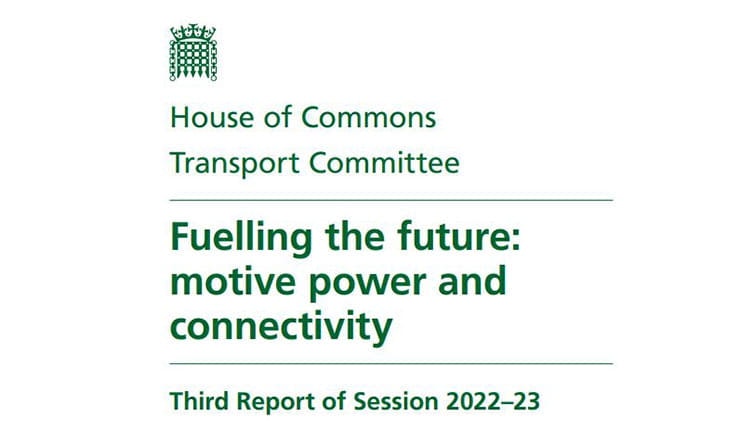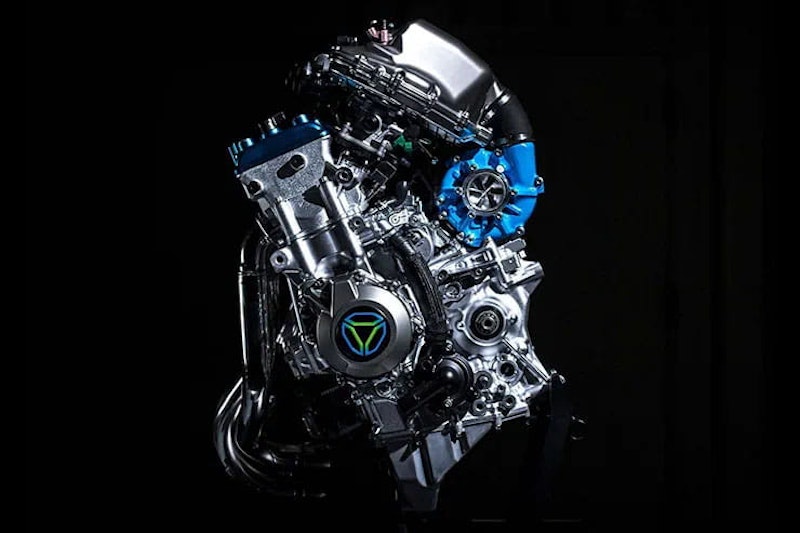Transport Committee highlights the potential of synthetic fuel
By Ben Purvis
Motorcycle Journalist
03.03.2023
The House of Commons Transport Committee has published its ‘Fuelling the future’ report and suggested that the focus on battery power to the exclusion of other carbon-neutral technologies shows the Government is “succumbing to groupthink and putting all its eggs in one basket.”
In July 2021 the Government published the ‘Transport Decarbonisation Plan’ outlining a route to net zero carbon emissions from the transport sector by 2050. The Transport Committee launched its inquiry into how the Government could reach that goal in December 2021. Its report, published this week, dedicates a surprising amount of space to the subject of synthetic fuels – so-called ‘drop-in’ replacements for petrol that are carbon-neutral as they absorb as much CO2 from the air during their production as they release when they burn.
We recently wrote about the potential that synthetic efuels offer, enabling ‘legacy’ vehicles to become carbon-neutral.
At the moment, the Government has plans to end the sale of CO2-emitting cars by 2035 and is targeting the same date for motorcycles, with an end-date for sub-125cc class bikes coming five years earlier, in 2030.
The report says:
While maintaining an official line on technology neutrality with respect to achieving zero emissions in private cars, the Government is in fact ‘putting all its eggs in one basket’: battery EVs. The reality is that not everyone in the UK can afford a new or second-hand electric vehicle, and if they could, cannot easily charge one at home.
The infrastructure is not adequate to deliver sufficient electricity to homes, and there are insufficient raw materials to produce the battery banks needed for all vehicles to be EVs. We therefore caution against the promotion of electric vehicles as being the only solution to reducing carbon emissions from private vehicles; as the cliff edge of 2030 (2035, 2040 and 2050) approaches and minds are concentrated, reality will bite.
We reiterate the message of our July 2021 report on zero emission vehicles that Government needs to take account of legacy petrol and diesel-powered motoring and continue to explore the potential of alternative fuels where possible. This includes the huge potential for sustainable fuels to provide a low-carbon option for conventional engines.
A reality check is needed. High-end premium and supercar manufacturers and smaller bespoke and specialised manufacturers—which have a much smaller construction carbon and other energy and pollutant footprint compared to EV manufacturers—need direction, clear guidance, and regulation from the Department for Transport, sooner rather than later.
Furthermore, while long-haul aviation and international shipping are often identified as the most likely users of sustainable fuels, we believe that the Government must open-mindedly consider all alternative fuels for all modes of powered transport, including private cars.
All the propulsion alternatives have a significant role to play so the Government needs to top demonising specific technologies that could really help. Addressing the existing fleet will be decisive in achieving the UK’s climate goals. Reducing greenhouse gas emissions right now by the use of increasing quantities of drop-in sustainable fuels enables us to address the existing fleet and minimise cost (and carbon emissions) through the use of existing infrastructure. It would also enable more socially equitable access to carbon reduction technologies for everyday transport as it would not be necessary to buy a new electric car and have access to charging infrastructure. However, sustainable fuels still produce emissions at point of use so offer no ‘apparent’ benefit in the current, misleading, legislative framework. We need a mechanism to enable the carbon savings associated with sustainable fuels to count, which would incentivise investment, drive down costs and offer a better-managed and complementary set of solutions.
Above: Hydrogen-powered Kawasaki carries the fuel in replaceable cartridges in the panniers to solve refuelling problems
In creating the report, the Committee sought expert advice across various technologies. On the subject of synthetic fuels it spoke to Paddy Lowe, perhaps best-known for 32 years in Formula One in technical director positions at Williams, McLaren and Mercedes. Today, Lowe is the founder of Zero Petroleum, manufacturing synthetic fuel. He told the Committee: “Electro-fuels are fuels that come from, effectively, water and carbon dioxide in the air, rather than any other feedstock. The exciting point about that is that you can make fuels that will drop straight into existing engines, without modification. That is replacing the status quo with a fossil-free equivalent.”
In written evidence, Zero Petroleum told the Committee: The development of a synthetic hydrocarbon fuels capability and industry at scale is critical to the UK meeting its emissions targets. Moreover, it presents a colossal opportunity for UK innovation and global leadership in the associated technology and the consequent export trade in the medium and long term. Other players (notably Germany, Scandinavia) are presently taking the lead in this sector.
When it comes to road transport the report concludes that “Direction, guidance and regulation from the Department for Transport in respect of sustainable fuels is urgently required. A mechanism is needed to recognise the carbon savings associated with sustainable fuels which would incentivise investment and drive down costs, allowing automotive companies to provide the solution by applying the right mix of technologies.”
However, one word is notably absent from the entire 53-page report: motorcycle. In fact, powered two-wheelers don’t get a mention at all.
The Motorcycle Industry Association’s CEO, Tony Campbell, said: “It’s encouraging to see the Transport Committee hold the Government to account on the feasibility of its phase out plans, and its focus on electric powertrains and zero tailpipe emission as the preferred solution.
“However, the powered light vehicle sector has been once again overlooked. We urge the Transport Committee to look at the Government’s phase out proposals for our sector in more detail.
“Current phase out proposals not only wrongly assume electric to be a silver bullet solution for our diverse sector, but risk major players reviewing their place in the U.K. market until technology and alternative fuel development is such that products can be more easily brought to market.”
You can read the entire report on the Parliament website here.
Share on social media:

